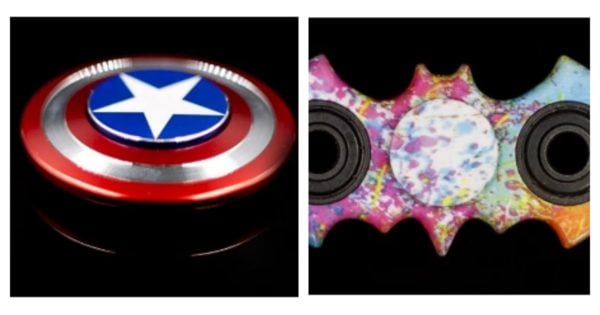They’re small, brightly-coloured and spinning.
Nobody would blame you for mistaking these items for toys, but Fidget Spinners aren’t meant for playtime.
The devices are marketed as a tool to aid learning, reduce stress and physical tension. Held between one’s fingers, they are activated when flicked.
The idea is this flicking will use up the user’s additional “fidgety” energy, so they can better focus on the task at hand.

It's a great idea in theory, but discussions around the items reveal how they are quickly becoming more of a toy trend than a learning device.

Top Comments
I was in my daughters class this afternoon swapping over readers and so many kids had those fidgit spinners. They did not seem beneficial at all, they were ridiculously disruptive. Kids flinging them around the classroom, shouting to eachother how well they could spin them.
I left that classroom with such a headache.
As if teachers don't have enough superfluous crap interrupting their teaching